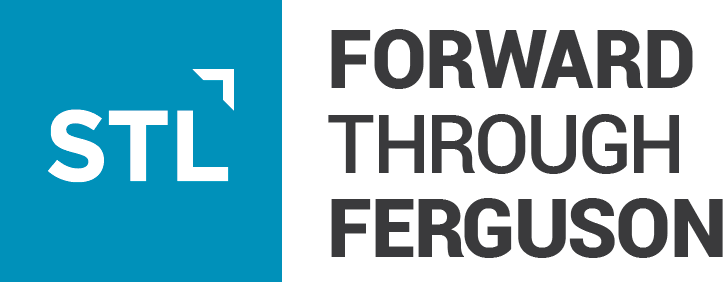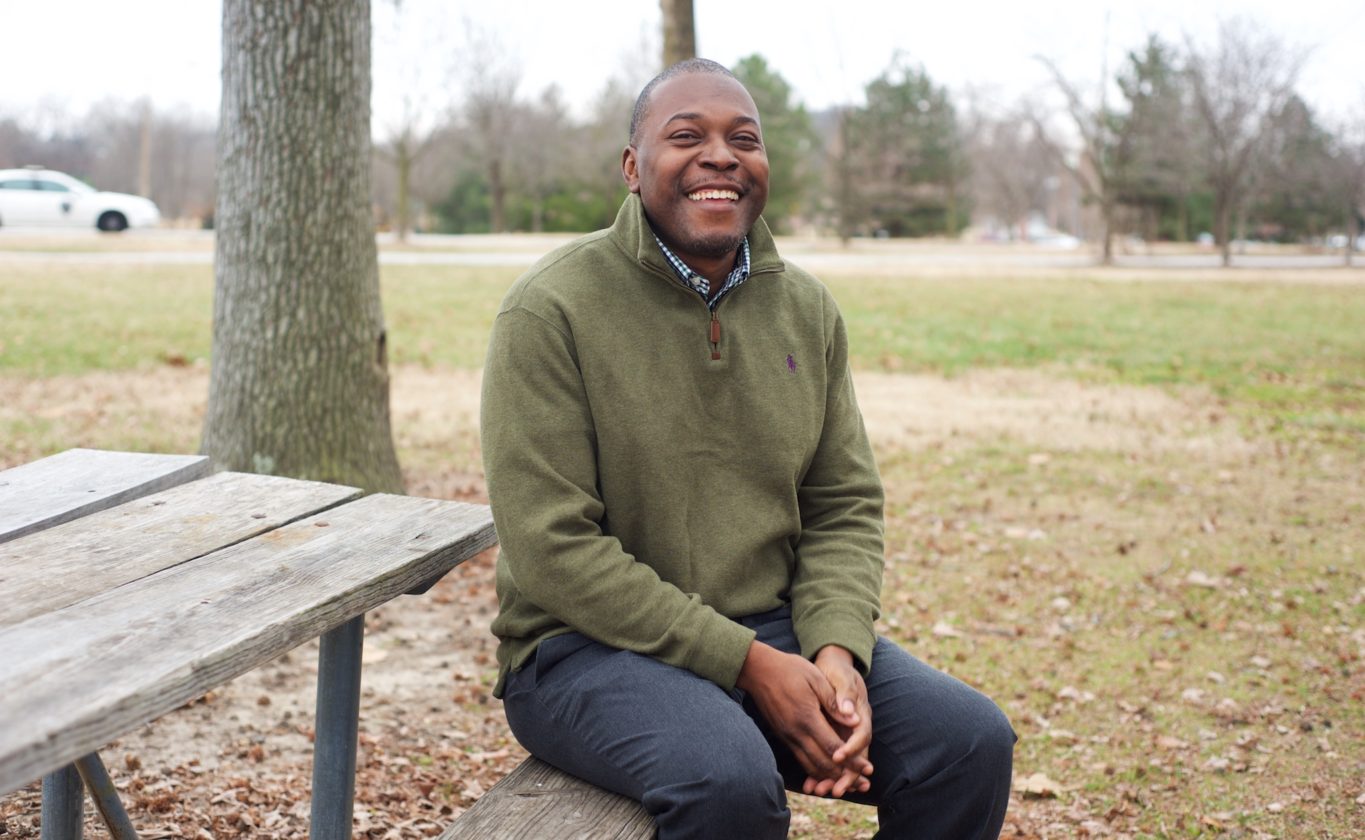I’m from the West End, or as I like to say, “The forgotten West Side.” I found out about Forward Through Ferguson through I’m going to call it the male initiative to bring in African American males. I think it was either through an email or a tweet I received. I looked at it, clicked on the link, and it told me about what it needed. The funny thing is, I thought all I had to do was submit a resumé and four letters of recommendation. I had the recommendations, but they emailed me back saying they were missing one thing. I had to answer four questions. The deadline was that day, and I’m not an English scholar by any means. It’s funny, I’ve got a lot of English major friends, and they always say, “Sure, send it to me. I’ll proof-read it.” That never happened this time, so I had to go for the gusto. I was hoping they could oversee my English grammar, my broken English. I’m horrible with commas and quotations. But, I spoke from my heart about the questions that were on there.
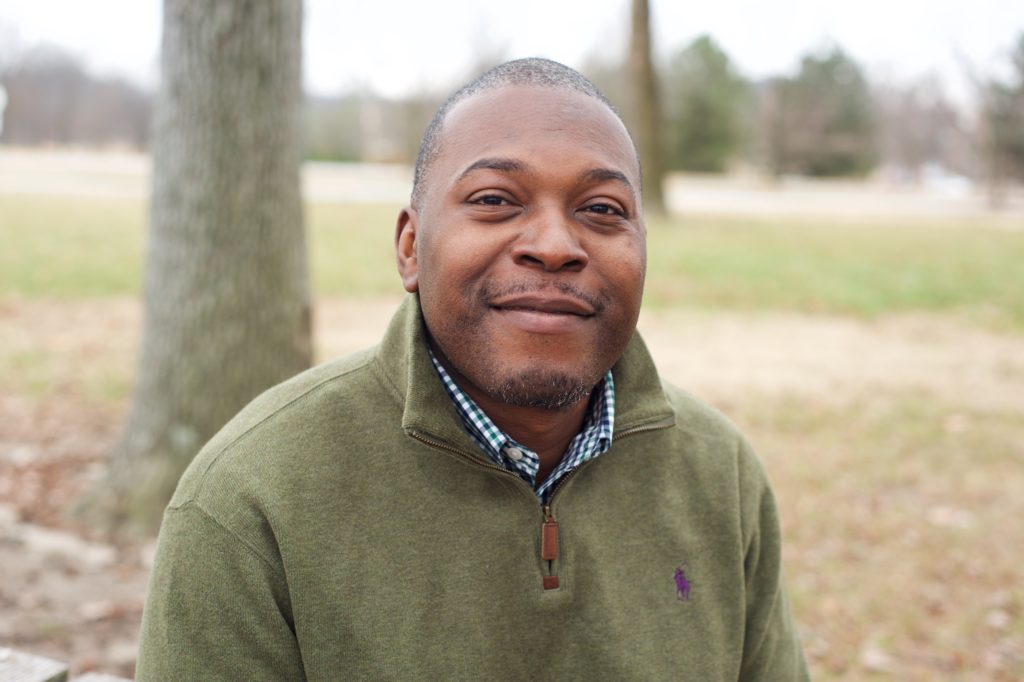
FTF Board Member Justin Idleburg, photos by Lindy Drew
Once the report came out, I downloaded it. I read some of it, and I thought, “Okay, but what are they going to do?” Jay Nixon brought all these great minds and people together, and I got kind of upset when I saw the Ferguson Commission at first, like, “You have all these people with PhDs and other degrees. All that is fine and dandy, but there is nobody here to truly represent the people.” I was born and raised in St. Louis. From the ‘R’s’ to the Arch, I’m so St. Louis. I call myself a gray ghost and within this last year, I met somebody who helped me understand that me living in a gray area is not beneficial. Where I’m from, there are people crying every night. But during the daytime, when it matters, they have no voice at all. The people I say I want to help, it doesn’t do anything for them if I don’t speak up. The gray area is where I can either pick and choose to step up or fade away and go back to where my comfort zone is on the West Side.
So I’m not going to give sugar-coated, PC answers. People out here are crying and suffering because of PC answers. I don’t feel like I’m in a space now to where it pays to be fake. How have African Americans in this city grown since the civil rights movement? By being able to move to North County? By being able to go to golf clubs and play golf with their coworkers? How? I’m going to say my piece because somebody needs to step up. Some of my colleagues, we can have a great discussion on street corners, but those conversations never make it to the tables where people need to hear it. We’ve had a lot of fakeness going on and, as a result, people have suffered. The end result is what happened with Ferguson, what happened in the Shaw neighborhood.
In my previous work, I was an advocate for mental health and I helped international mental health agencies raise money and create policy. So I look at it as, “If I can help an international group raise hundreds of thousands of dollars, why can’t I do great things here in St. Louis?” The majority of things I have done have been in other states or countries. And when I come home, I’m viewed as another poor, Black kid from the West Side. Regardless of if I’m in the airport or I’m walking down the street, I’m just another disenfranchised, Black male who nobody cares anything about. So I wanted to do something for the people that matter the most. We have a big population — the underbelly, as they call them — of the working class. It’s easier for them to hibernate and self-medicate with marijuana, popping prescription pills, drinking, and smoking weed versus having to come out and deal with the BS that’s in our city in the form of race, Racial Equality, and all of that.
I was in St. Louis Public Schools, went out to the Lindbergh School District, then come back into St. Louis Public Schools. I got to see things like teen pregnancy and drug abuse going on. As a kid, I never thought about it. But as I started becoming more and more involved in advocacy work and talking for those that don’t have a voice, it made me think. It hurts my feelings to know I have a lot of female friends who bust their butts. They can’t get ahead because they make two or three thousand dollars over what they may qualify for financial aid or they can’t get home loans and closing costs paid for and things of that nature. It deters them, and I’m tired of seeing that. We have to do something to empower these people to live their dreams.
We have to bring what they want into reality and help them do that. We have to help change the mindset to let people know what you see on TV is obtainable, but you have to do something. You like doing hair? Go to school and do hair. Go be a great stylist. Whatever it is that you want to do, be the greatest that you can. Build your brand and be the best you can be. We live in a world now where everybody thinks they’re important because they get likes. Why not help them understand how you could use that platform to enhance whatever it is that you’re trying to move forward with? Say you want to do a diaper drive. You want to help homeless mothers by giving them diapers. Why not use your platform to try and get your girlfriends and their friends to collect cases of Pampers? Now you have started a movement so that no homeless child will not have Pampers.
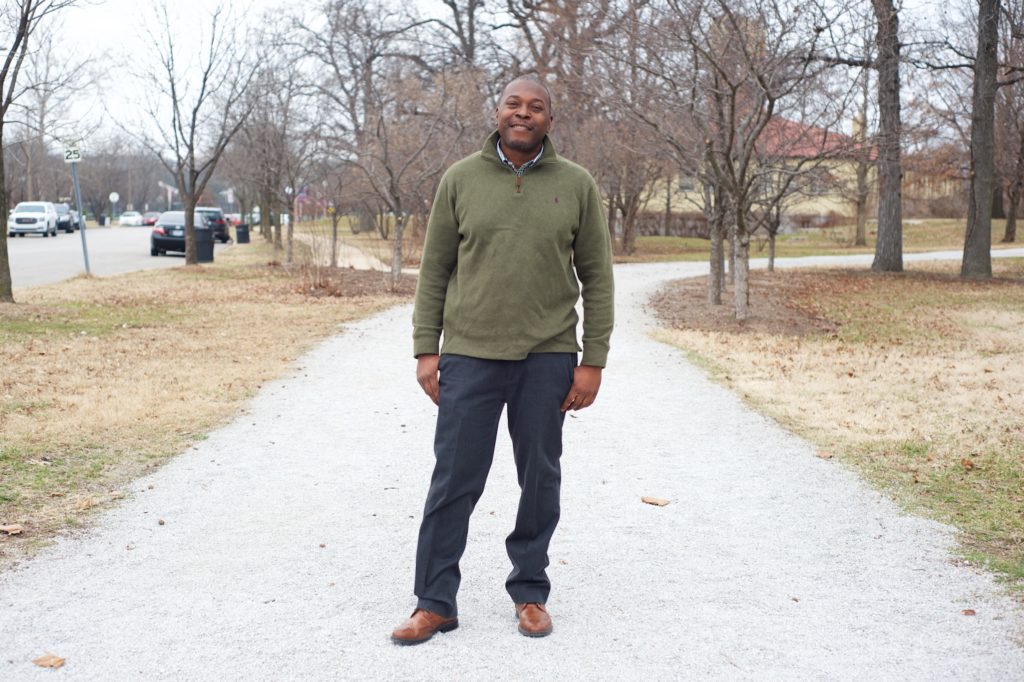
“When’s the first time you remember having a leadership position, even as a kid?”
Never. When those types of positions presented themselves, I resorted back to being the West Side J, being kind of standoffish to where people don’t want to mess with me. I’d rather crack jokes and be like my mom called me, “The Show,” meaning when people are around you, they’re always comfortable with you. “Oh, this guy is a joker.” I was in my late 20s when I started doing advocacy work with an international mental health agency. That was the first time I ever even thought about some form of leadership. It was interesting, because this was during the time when they were doing budget cuts, and I was like, “Why are they cutting all of the money?” At that time, I didn’t talk a lot. I was like, “Why are they doing budget cuts when you all do such great work?” and I’m bringing up all these stats and stuff. I got an email telling me to come to talk to the executive director and one of the system directors. They said, “We like what you said the other day. How would you feel about going to Jeff City to talk with state representatives about not cutting our funding?” Hey, if I can talk smack on the corner about anything and it’s not helping a soul, why can’t I do something that’s going to make a difference?
I started working on some state boards around mental health and on transformational grants with the state. That helped propel me to the federal level. I got to go to DC, and when Mental Health America had a national conference, I applied for a scholarship. I said, “I think I represent a voice you all don’t usually get to hear,” and I wanted to be able to talk to our legislators about the things I have concerns about. I got to meet Kit Bond, Roy Blunt, Lacy Clay, Claire McCaskill, and I got to talk with them and help them understand how they all could help us with mental health reform. It just started skyrocketing. Since then, the agency I worked for that is part of an international community asked me how I would feel about being on their advisory board. And they put me in touch with mental health leaders from all over the globe.
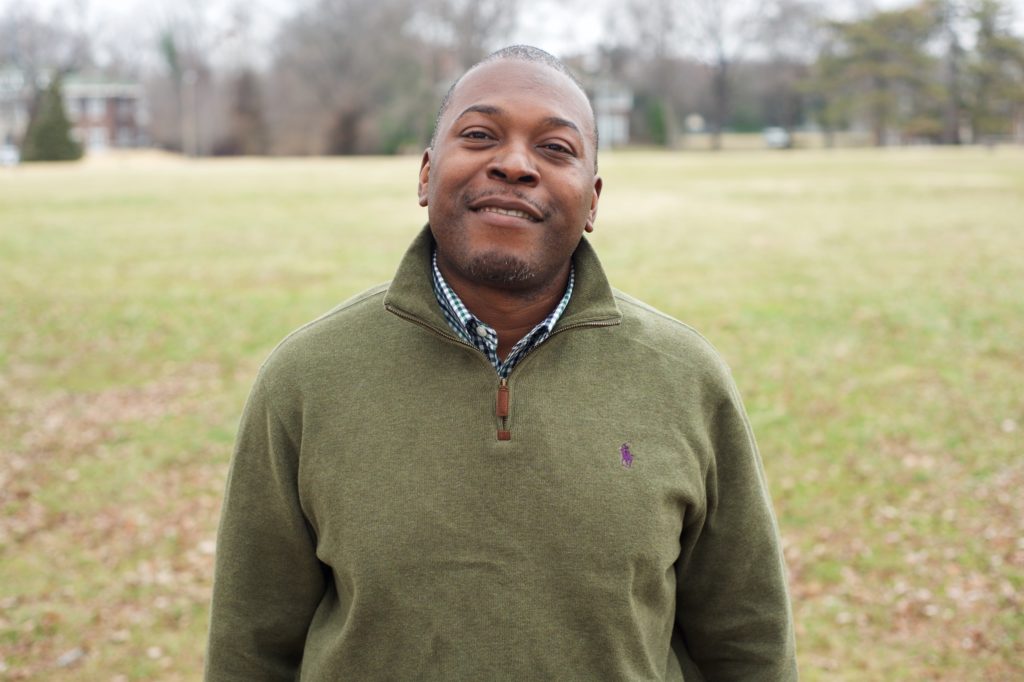
When you see something you’re passionate about, you go all out. Working in the mental health field helped open up avenues for me that I would probably have never gotten a chance to do if I stayed quiet. I never knew it would take me to the places I’ve been to. I’ve had the privilege of speaking at the United Nations in front of all these different people. It wasn’t in the nice big room, but I think that’s one of my greatest accomplishments. I don’t talk about it because, as I said, I like to walk around being a gray ghost with people thinking I’m just a poor, disenfranchised, Black male. I like you thinking that. A lot of people write me off and I just laugh. But, really, what can we do to improve St. Louis? Let’s get it.
“Where were you the moment you found out that you got accepted to be on the Forward Through Ferguson board?”
I was at my neighbor’s house having lunch. We were sitting in her kitchen talking and I told her, “I’m pretty nervous. I just got an email telling me I have been accepted as a new board member.” She was like, “That is great! I knew there was something about you when I met you, Justin. I think you’re gonna be able to do a lot of great things.” I felt joy and nervousness. Most people would probably shy away from something this big that can have this type of impact. I’m coming into an atmosphere where I know no one and that is very rare. I don’t know any of these people and none of these people know anything about me. Now I have a big responsibility on my shoulders.
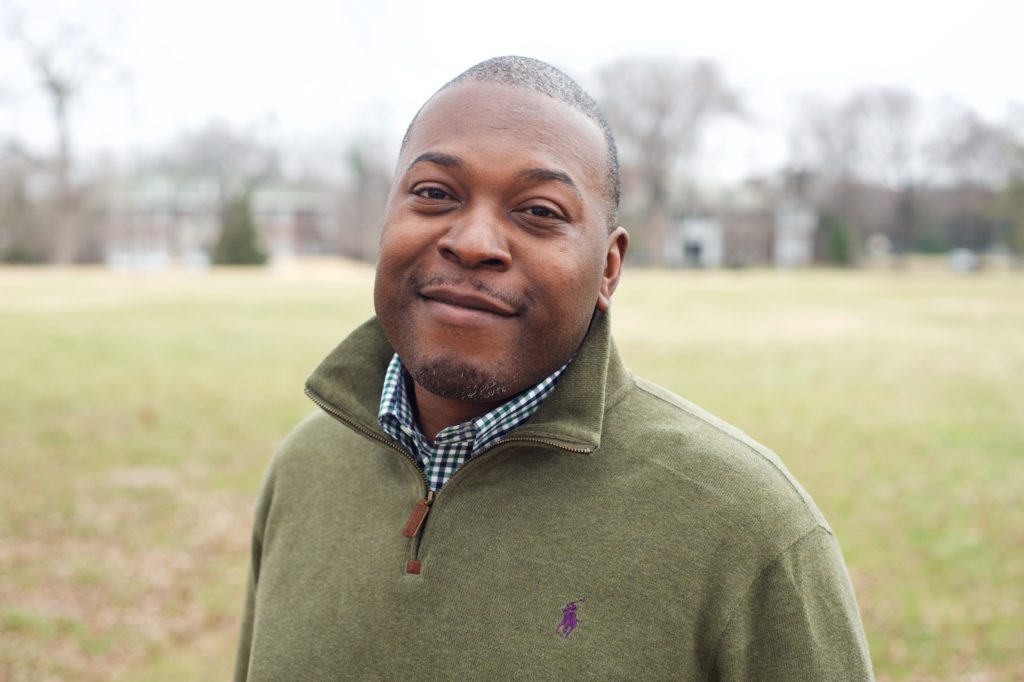
I’m an unusual candidate because I come to the table with no degrees. The last degree I got was a high school diploma. That’s it. The library is my greatest friend. I always said if I became very rich or wealthy, I would give a nice chunk of money to the public library and Channel 9. Without them, my mind probably wouldn’t be as broad as it is. They have so much great programming. I’m also an unusual pick because you wouldn’t think a person who comes from my background would even want to apply for something like this. Everybody else holds all these different degrees, all these great accomplishments, and you’ve just got a guy that pops up out of nowhere. I’m from the West Side. Some people don’t know there’s a West Side here. Forward Through Ferguson helps me feel like a phoenix rising through the ashes because it’s a new birth for me. It allows me to be able to use my expertise in mental health, community development, and networking and come up with innovative ideas to help situations become better. I look at it like this: How can I work with my fellow board members and their circle of professional networks to help further the mission and the calls to action that are here at hand?
“Who’s a person or people in your life that you’re accountable for with this work? Who do you hold yourself accountable to?”
I’m not a parent, I’m an observer of parents. But this work holds me accountable to the children and mothers of the region, those who live on the West Side, who live in North City, who live in North County, those who live in Franklin County and Jefferson County. Because it’s not only people in urban St. Louis or inside the inner belt who are suffering. Our region is suffering as a whole. I hold myself accountable to those. Why women and their kids, in particular? The majority of households are single parents. And who is the decision-maker? The mother. Who’s the teacher? The mother. If we can help empower the mother to do great things, she will pass that along to her children. To see their mom do something out of the ordinary, that might make them think, “Man, how can I be like my mom?” Kids admire their parents. I want these parents and young people to have opportunities. Right now, they don’t have opportunities. They just have standards. Our school districts are giving them pure standards. You take standardized tests. You’ve got a standardized education. But, if we go on the other side of the inner belt, kids have STEM and robotics. How can we have two or three STEM schools in the City of St. Louis? Why isn’t STEM in all the schools?
Our school district and our city have such a great history. How do we go from being innovative thinkers and creating opportunities for our parents and their children to letting their neighborhoods dictate who these kids are going to be? With as many parents as we have and St. Louis Public Schools being the largest school district in the state, we should get half of those parents to speak up like, “We’re not going for this.” Our city likes to hear about accomplishments and titles. As much as I like to stay in the shadows, I have to come out and not be the gray ghost. Our city is haunted by greatness, and we’re not living up to it. I want to help be a part of that resurgence of that greatness.
